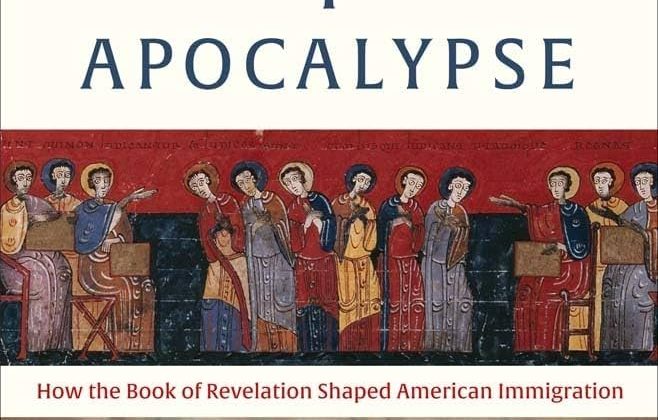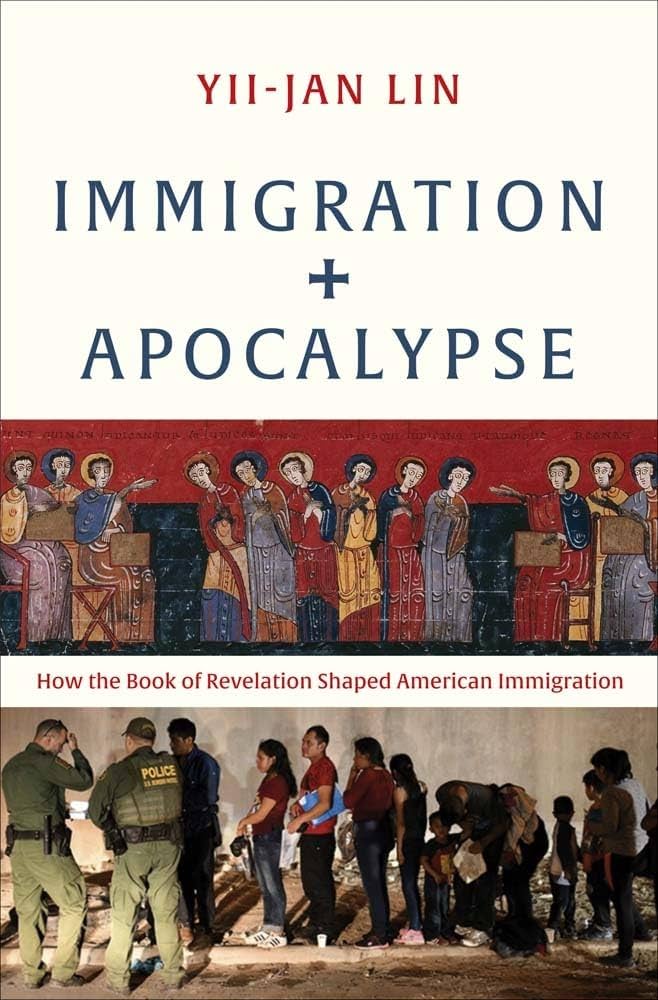

Yii-Jan Lin is Associate Professor of New Testament at Yale Divinity School. This interview is based on her new book, Immigration and Apocalypse: How the Book of Revelation Shaped American Immigration (Yale University Press, 2024).
JF: What led you to write Immigration and Apocalypse?
YL: I was teaching in Berkeley, CA at the time and had been asked to teach on some apocalyptic texts for an Asian American community in the area. My mind went to the history of Asian immigration in the SF Bay Area and how the experience of immigration can be “apocalyptic” in both the biblical and popular senses of the word. Immigration means journeying to a new world, but it often involves fleeing disaster, dreams of utopia, and calamity. The place names of the Bay Area also struck me as particularly related to Revelation and its promise of a new world—names such as “Golden Gate,” “Golden Gate,” and “Gold Mountain” (the old Chinese name for San Francisco). I began to investigate further, and that’s how the research begun for the book.
JF: In 2 sentences, what is the argument of Immigration and Apocalypse?
YL: The book argues that from the moment of European discovery, America/the New World was conceptualized as an apocalyptic land, and this has fed notions of American exceptionalism that sees the U.S. as God’s country and the New Jerusalem of Revelation. But this conceptualization has also been used to portray unwanted immigrant groups throughout American history as God’s enemies—as the plagued, idolatrous, sexually immoral, and criminal in the Book of Revelation.
JF: Why do we need to read Immigration and Apocalypse?
YL: Americans stated that immigration was one of the top issues that drove their votes last November. Immigration is also one of the most controversial issues driving government action, funding, and debate, both now and through all of U.S. history. This book highlights the religious themes and concepts driving American thinking on the issues, how underlying theological assumptions and ideations of nation and peoplehood fuel insider/outsider rhetoric and action. This is no more true than today, when Christian nationalism and dominionism are very much a part of the current presidential administration.
JF: Why and when did you become an American historian?
YL: It was through the writing of this book! I am trained as a historian of early Christianity, working with ancient texts and contexts. Researching this book was a crash course in learning the landscape of American religious history. It took a lot of consulting with American historian colleagues and friends, getting their feedback, and reading.
JF: What is your next project?
YL: I am working on a book that explores the textual phenomena of the New Testament—that is, what is the New Testament, as a text, as a concept, as a social reality? what do people think we can do with it? how is it stored, displayed, used in the form of ancient manuscripts, etc.?
I am also working on a project concerning international borders and religion.
JF: Thanks, Yii-Jan!